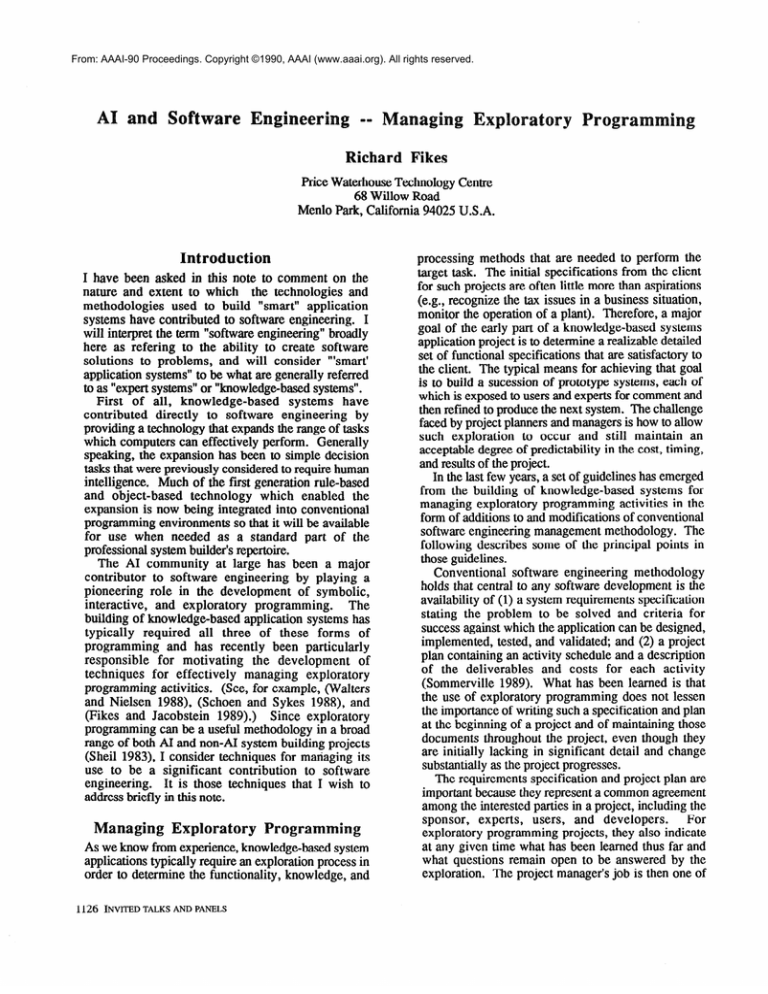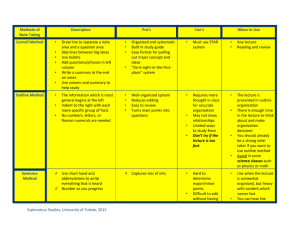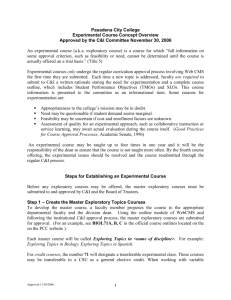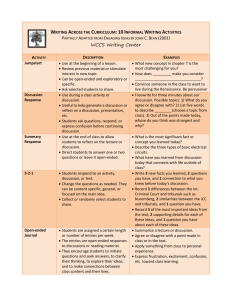
From: AAAI-90 Proceedings. Copyright ©1990, AAAI (www.aaai.org). All rights reserved.
Richard Fikes
Price Waterhouse Technology Centre
68 Willow Road
Menlo Park, California 94025 U.S.A.
Introduction
I have been asked in this note to comment on the
nature and extent to which the technologies and
methodologies used to build “smart” application
systems have contributed to software engineering. I
will interpret the term “software engineering” broadly
here as refering to the ability to create software
solutions to problems, and will consider “‘smart’
application systems” to be what are generally referred
to as “expert systems” or “knowledge-based systems”.
First of all, knowledge-based
systems have
contributed directly to software engineering by
providing a technology that expands the range of tasks
which computers can effectively perform. Generally
speaking, the expansion has been to simple decision
tasks that were previously considered to require human
intelligence. Much of the first generation rule-based
and object-based technology which enabled the
expansion is now being integrated into conventional
programming environments so that it will be available
for use when needed as a standard part of the
professional system builder’s repertoire.
The AI community at large has been a major
contributor to software engineering by playing a
pioneering role in the development of symbolic,
interactive, and exploratory programming.
The
building of knowledge-based application systems has
typically required all three of these forms of
programming and has recently been particularly
responsible for motivating the development of
techniques for effectively managing exploratory
programming activities. (See, for example, (Walters
and Nielsen 1988), (Schoen and Sykes 1988), and
(Fikes and Jacobstein 1989).) Since exploratory
programming can be a useful methodology in a broad
range of both AI and non-AI system building projects
(Sheil 1983), I consider techniques for managing its
use to be a significant contribution to software
engineering. It is those techniques that I wish to
address briefly in this note.
Managing Exploratory
Programming
As we know from experience, knowledge-based system
applications typically require an exploration process in
order to determine the functionality, knowledge, and
1126 INVITEDTALKSANDPANELS
processing methods that are needed to perform the
target task. The initial specifications from the client
for such projects are often little more than aspirations
(e.g., recognize the tax issues in a business situation,
monitor the operation of a plant). Therefore, a major
goal of the early part of a knowledge-based systems
application project is to determine a realizable detailed
set of functional specifications that are satisfactory to
the client. The typical means for achieving that goal
is to build a sucession of prototype systems, each of
which is exposed to users and experts for comment and
then refined to produce the next system. The challenge
faced by project planners and managers is how to allow
such exploration to occur and still maintain an
acceptable degree of predictability in the cost, timing,
and results of the project.
In the last few years, a set of guidelines has emerged
from the building of knowledge-based systems for
managing exploratory programming activities in the
form of additions to and modifications of conventional
software engineering management methodology. The
following describes some of the principal points in
those guidelines.
Conventional software engineering methodology
holds that central to any software development is the
availability of (1) a system requirements specification
stating the problem to be solved and criteria for
success against which the application can be designed,
implemented, tested, and validated; and (2) a project
plan containing an activity schedule and a description
of the deliverables and costs for each activity
(Sommerville 1989). What has been learned is that
the use of exploratory programming does not lessen
the importance of writing such a specification and plan
at the beginning of a project and of maintaining those
documents throughout the project, even though they
are initially lacking in significant detail and change
substantially as the project progresses.
The requirements specification and project plan are
important because they represent a common agreement
among the interested parties in a project, including the
sponsor, experts, users, and developers.
For
exploratory programming projects, they also indicate
at any given time what has been learned thus far and
what questions remain open to be answered by the
exploration. The project manager’s job is then one of
managing the evolution of that agreement and assuring
that the open questions are being effectively addressed.
The first guideline in managing the evolution of the
common agreement is to make sure that all interested
parties understand from the outset that the agreement is
in fact going to evolve. Everyone must understand
that the current agreement at any time during the
exploratory phase of the project is only a best guess
and that the primary purpose of the exploration is to
improve those guesses and remove the uncertainties in
Thus, the changes in the requirements
them.
specification and project plan at the end of each
exploratory step are the results of that step. If there
are no changes and no reduction of uncertainty, then
nothing has been accomplished by the exploration.
The primary way to gain support for a project in
which specifications and plans are expected to change
is to establish clear procedures for updating the
specification and plan and for informing all interested
parties when those changes occur. (The manager can
make clear, also, that the updating and informing
procedures are not expected to change.) The central
element of those procedures is to have frequent project
reviews, including prototype demonstrations, that give
all interested parties an opportunity to revise and renew
their agreements. Such reviews typically produce a
list of errors or problems in the prototype to be
addressed in the next step such as desired changes in
the user interface, missing or inadequate areas of
knowledge or functionality, or errors in the knowledge
or its representation.
At each project review, a detailed specific plan needs
to be presented for the period up to and including the
next review. An important element of that plan is a
list of objectives for the step. Such a list would
include the unresolved requirement specification issues
to be addressed and errors or problems in the prototype
that were found during the review to be fixed. These
objectives provide the developers with a basis for
deciding what to do next and a set of criteria for
evaluating the results of the next step. At any time
during a project, the plan for the current prototyping
step is not expected to change substantially. Thus, an
exploratory programming project can be considered to
have a stepwise stable project plan such that at each
review point a stable plan exists for the next step.
Summary
The technologies and methodologies used to build
knowledge-based systems have expanded the range of
tasks that computers can effectively perform and has
contributed
to the development
of symbolic,
interactive, and exploratory
programming.
In
particular, experience in building knowledge-based
systems has produced a set of guidelines for managing
both AI and non-AI exploratory programming efforts.
Those guidelines have contributed substantially to
making exploratory programming a viable system
development technique for use whenever there is
significant
uncertainty
as to the functional
requirements for the desired system.
eferences
Sommerville,
I. 1989. Software
Reading Mass.: Addison-Wesley.
Engineering.
Walters, J.R., and Neilson, N.R. 1988. Crafting
Knowledge-Based
Systems; Expert Systems Made
(Easy) Realistic. New York: Wiley-Interscience
Schoen, S., and Sykes, W. 1987. Putting Artificial
Intelligence to Work; Evaluating and Implementing
Business Applications. New York: John Wiley &
Sons, Inc.
Fikes, R., and Jacobstein N. 1989. Managing Expert
Tutorial:
MAS. Eleventh
Projects.
International
Joint Conference
on Artificial
Intelligence. Detroit: IJCAI-89.
System
Sheil, B. 1983. Power Tools for Programmers.
February, 1983.
DATAMATION
FIKES 1127




